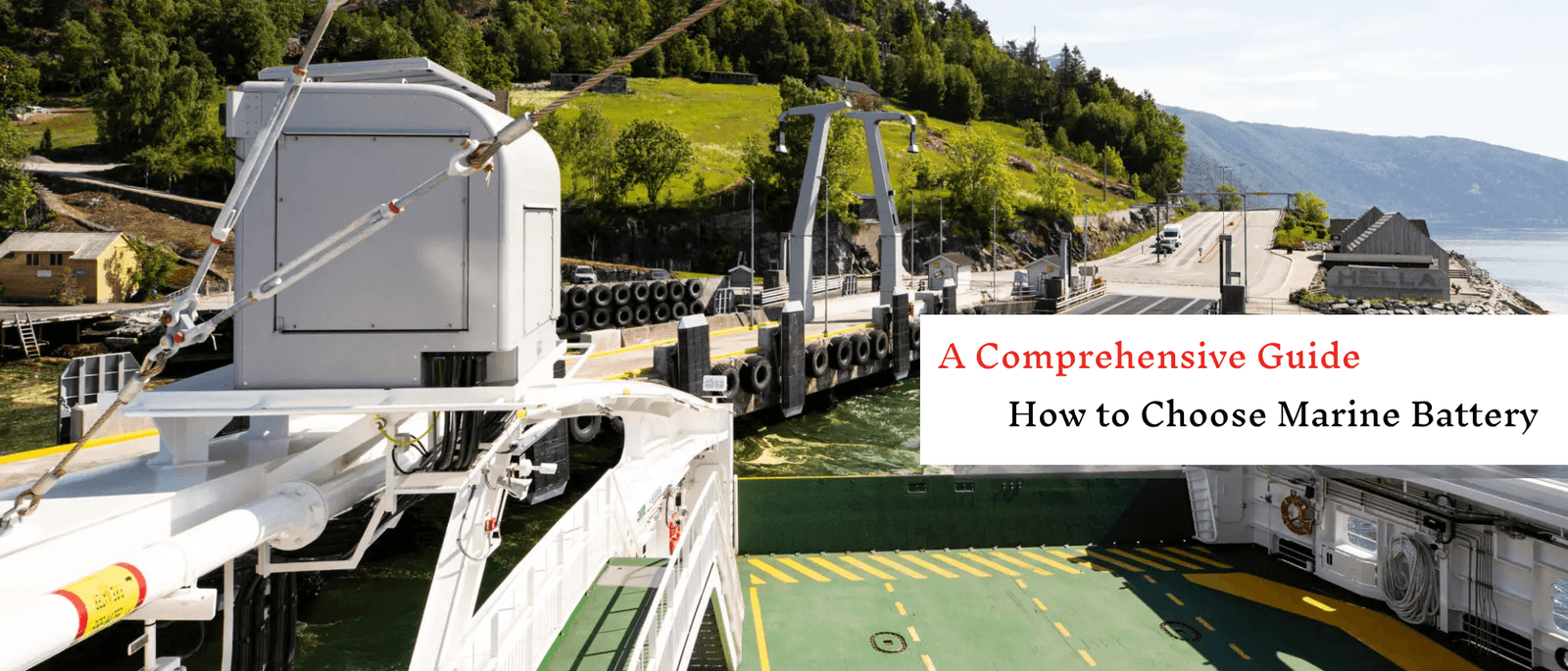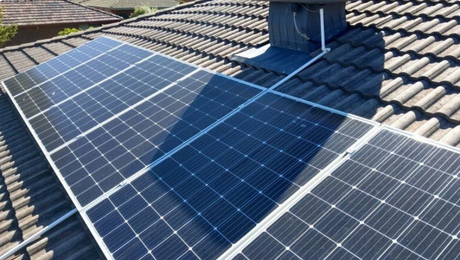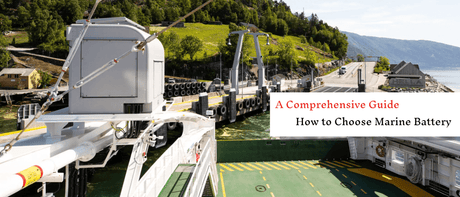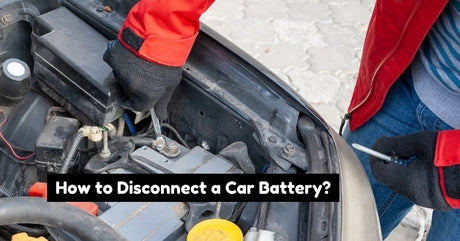A good marine battery will ensure a safe, reliable, and fun sailing experience on your boat. The right battery will power the navigation system, communication system, lighting, refrigeration, and electronics. That’s why it's crucial for you to find the right battery to adequately power your boat.
However, with a wide range of options, finding the best marine battery for your boat can feel overwhelming. Understanding your power needs and battery capabilities is key to identifying the right battery for your boat. The Renogy Core 12V 50Ah LiFePO4 battery stands out with its impressive 6000+ cycle lifespan and intelligent battery management system.
In this article, whether you are a first-time boat owner or an experienced boater, this marine battery guide will enlighten and help you choose the best battery for your boat.
Understanding Marine Batteries
Marine batteries are specialised battery types designed for powering marine vehicles such as boats, canoes, yachts etc. They are designed to withstand unfriendly marine conditions like wetness, vibration and extreme temperatures. High-quality marine batteries are usually constructed with thicker and heavier plates that allow them to withstand harsh marine conditions. Most marine AGM batteries have a sealed and dry-fit construction to prevent electrolyte leakages, which minimizes the risks of damaging your vessel.
Choosing the right marine battery type is necessary as it helps support the specific needs of your vessels. It also ensures the battery's reliability and durability.
The Three Basic Marine Battery Types
There are three types of marine boats, deep-cycle, dual-purpose, and starting marine ships.
Marine Starter Batteries
Marine starting batteries, also known as cranking batteries, are designed to provide quick, short bursts of power for cranking up the engine. They are meant to start the boat engine but will not keep it running. They feature thin plates and a bigger surface area for quick charging and discharging. With proper maintenance, starting batteries serve you up to 4 years.
Marine Deep-Cycle Batteries
They feature thicker plates with higher capacity for discharge and recharge cycles. Due to their high capacity, they provide steady electricity to the boat for an extended time. They are suitable for powering fish finders, trolling motors, onboard lighting, radios, GPS, and other electronic devices. Marine deep-cycle batteries include:
Absorbed Glass Mat (AGM) Batteries
AGM marine batteries are spill-proof and maintenance-proof featuring a fiberglass mat to absorb electrolyte. They have a lifespan of 4 to 7 years.
Flooded Lead-Acid Batteries
They are cost-effective and commonly used to power boats and other marine vehicles. Unlike AGM batteries, flooded lead-acid batteries require regular maintenance such as ensuring proper ventilation and water level monitoring. The lifespan of these batteries is 3 to 5 years with proper maintenance.
Lithium Boat Batteries
Lithium boat batteries are specially designed for marine applications. They are gaining traction due to their lightweight nature, long life span, and high efficiency. For demanding marine applications, Renogy's Pro 12V 100Ah Smart Battery exemplifies these advantages with its innovative self-heating capability for cold weather operation and Bluetooth monitoring - features that make it particularly appealing for tech-savvy boaters who venture into various weather conditions. For larger vessels or those requiring substantial power reserves, the Renogy Core Mini 300Ah Lithium Iron Phosphate Battery model offers exceptional capacity in a compact form factor, making it an ideal choice for extended voyages without compromising valuable space. The lifespan of lithium batteries is 8 to 10 years, with these modern options often exceeding traditional performance expectations.
Marine Dual-Purpose Batteries
Marine dual-purpose batteries combine the features of deep-cycle and starting batteries, making them suitable for smaller boats with limited space. However, they are less effective than starting and deep-cycle batteries.
They can start the boat engine and provide energy for boat electronics, lighting systems, and trolling motors. Marine dual-purpose batteries last 3 to 5 years.
Key Specifications to Consider When Choosing a Marine Battery
A single battery is not a one-size-fits-all for every boat. Some of the additional factors to consider when buying a marine battery include:
Battery Capacity
How much power does your boat require? Battery capacity relates to the amount of energy the battery is capable of storing, and it’s measured in amp-hours (Ah). A battery with a high rating can provide power for an extended duration.
A battery capacity of 50 to 100 Ah is sufficient for powering small boats, fish finders, trolling motors, and boat lights. Larger boats such as sailboats and cruisers have more onboard amenities with higher power demands and may require batteries with over 200Ah capacity.
When choosing the right battery capacity, take into consideration the amount of time you will run the electrical systems in the boat. Other essential factors to consider are the frequency of use and power needs of all your devices.
Cold Cranking Amps
Ensure the marine starting battery has adequate power to match the boat’s engine for cranking up the engine. Therefore, one key feature to consider in a battery is the Cold Cranking Amps (CCA). The higher the CCA, the more power is available to start the engine. Modern inboard engines and large outboards with fuel injection need batteries with at least a 1000 CCA rating to perform well. However, smaller engine placements do not require a high CCA rating.
Voltage
Voltage is a critical factor to consider when looking for a suitable battery for your boat. You should ensure the battery is compatible with the boat's electrical system.
The wrong voltage can damage the electrical components on boats and subsequently result in costly repairs. Depending on the voltage, there are categories of batteries.
- 12 Volt- The 12V batteries are suitable for small-sized boats such as dinghies, fishing boats, and small cruisers. They are also capable of powering electronics.
- 24 Volt—This is suitable for larger boats such as sailboats and cruisers with a more intricate electrical system. It is a series connection of two 12-volt batteries to provide more power.
- 36 Volt- The 36V battery system is ideal for large boats with an electric propulsion system. The battery system comprises three 12V batteries in a series connection.
Additionally, before purchasing a battery, consult a boat expert or user manual to help determine the right voltage for your boat.
Tips for Choosing the Right Marine Battery
Every boat has a set of needs that are distinct from those of other vessels. Therefore, when choosing a boat, consider a battery capable of meeting your boat's power requirements. Here are some tips to help you choose the right marine battery.
Power Needs
When choosing the right battery for your boat, you must first understand all your power requirements. Different batteries have various features, such as Cranking Amps (CA), Cold Cranking Amps (CCA), Ampere hours (Ah), and voltage. On average, a typical marine battery should have a capacity range of 70 to 100 Ah, approximately 750 CCA, and 12V. However, bigger vessels with higher power demands require larger batteries.
Additionally, if you are replacing an old battery, ensure the specifications match the new one.
Weather Considerations
Weather conditions will affect a battery's performance. Boats that sail for long distances experience different types of climates, such as extreme cold and heat. These changes can negatively affect the battery's performance and lifespan. Consider an all-weather battery, such as LiFePO4 batteries, with enhanced safety features to withstand extreme heat and cold.
Battery’s Compatibility with the Charging System
If the charging system is not aligned with the battery, it can cause the battery to shut off, damage devices, or affect its longevity. Batteries come with charging instructions and methods. Consider using a marine-grade charger that will match the battery’s chemical composition and voltage. Overcharging will damage the battery and shorten its lifespan with time. Therefore, consider buying a battery that seamlessly integrates with the boat's electrical system for maximised performance. Also, read the manufacturer's charging guidelines.
Battery’s Durability
Lead-acid marine batteries have a lifespan of up to 3 years and a maximum of 500 charging cycles. Lithium batteries have a lifespan of up 8 to 12 years and 2,000 to 5,000 charging cycles. Lithium batteries are highly efficient, safer, and durable, making them a worthwhile long-term investment for your boat.
How to Maintain Your Marine Battery
Your marine battery is your boat's lifeline. It keeps essential boat components moving to keep you safe and comfortable. Here are tips to help you maintain your battery in good condition.
Clean the Battery Regularly and Ensure It’s Well-Secured
Keep your battery clean and ensure all connections are safely tightened for optimal performance. Corroded terminals will cause resistance and starting problems due to delayed and insufficient power delivery. Use baking soda and water to clean the terminals and to neutralise the acid to remove build-up. Vibrations due to rough waters may loosen the battery connections and damage the internal plates. Check for loose connections and tighten them immediately.
Observe Good Charging Practices
Proper and safe charging is essential for good performance and longevity of your battery. Using the wrong charger, overcharging, and undercharging will damage the battery and shorten its lifespan. Consider using a smart charger to avoid instances of under or overcharging your battery.
The Battery Must Match the Engine
The starting marine battery must match the engine requirements in terms of size and power. A small battery size cannot provide the cranking amps, while a larger battery is costly.
Regularly Monitor the Battery Temperatures
Extreme temperatures significantly affect the performance and longevity of a battery. Heat speeds up the battery’s chemical processes, causing faster discharge and damage to the battery. Freezing temperatures affect the battery’s cranking power. Monitor and adjust the environmental temperature around your battery for continued efficiency and durability.
Proper and Safe Battery Storage
If you are not sailing or using the boat for a while, detach the batteries from the boat. Clean and store them in a cool dry place at room temperature to prevent discharge and potential damage. Remember to charge the battery using a trickle charger before storing it away. Keep the battery stored at approximately 40% charge to preserve its capacity and reduce sulfation.
Final Thoughts
Are you looking for a suitable marine battery for your vessel? The market is saturated with all types of batteries. Take time to research the right battery for you based on the size of your boat and power requirements. The above guide will help you choose the best battery for your vessel.
Generally, ensure the battery you choose is designed to withstand marine environments. Renogy marine batteries are designed to withstand the rough marine environment while prioritising reliability, durability, safety, and ROI.
FAQs
1. Can I use an ordinary battery on my vessel?
Avoid using a standard battery for marine use. Marine batteries are specially designed to withstand harsh environmental conditions such as excess moisture and violent vibrations. Using an automotive battery will damage and fail.
2. How can I effectively charge my marine battery?
Each marine battery comes with varying charging parameters. For instance, AGM and lead-acid charge through multistage charging, such as bulk absorption and float stages. Lithium marine batteries have a specialised charger for safely charging each battery.
3. How do I tell it’s time to replace my marine battery?
Some indicators that you need to replace your marine battery include delayed engine cranking, dim lights, and fast loss of charge. Other signs are leakages, visible cracks, and swelling.










